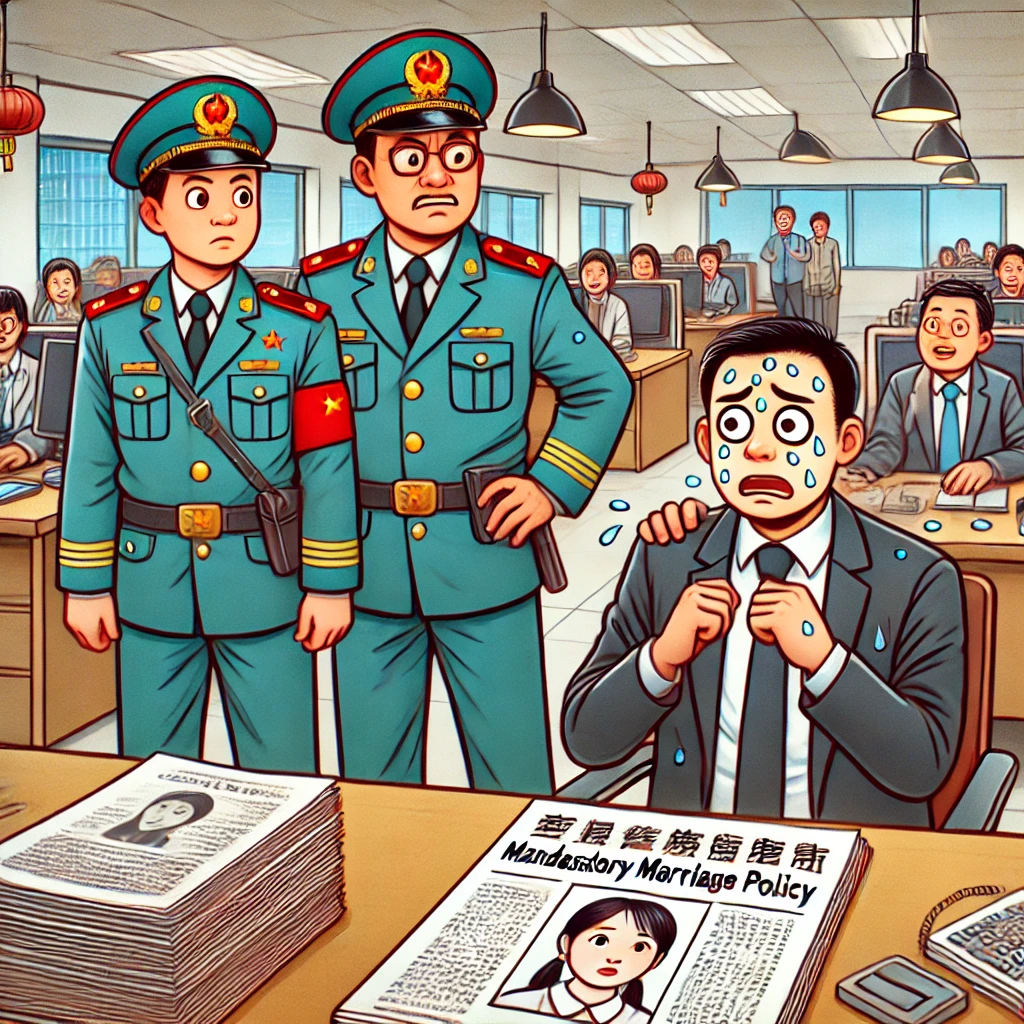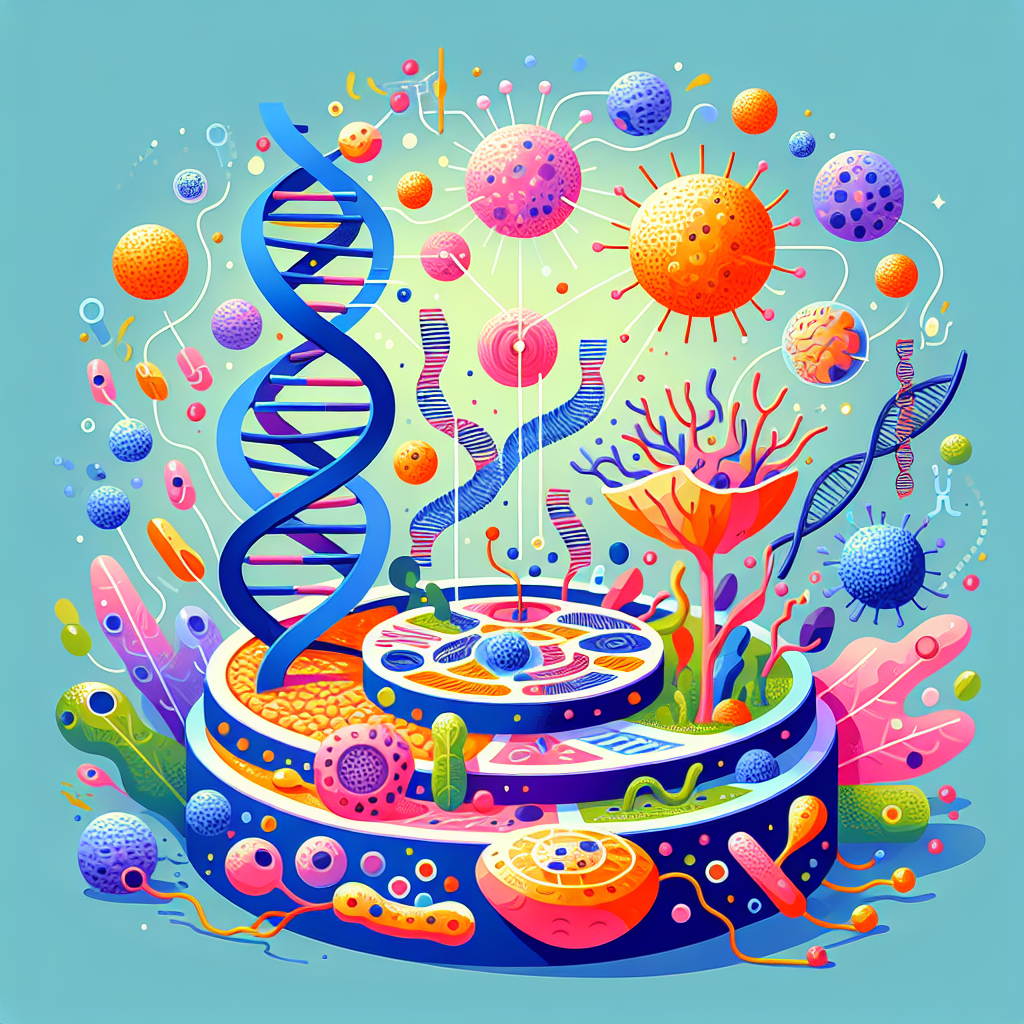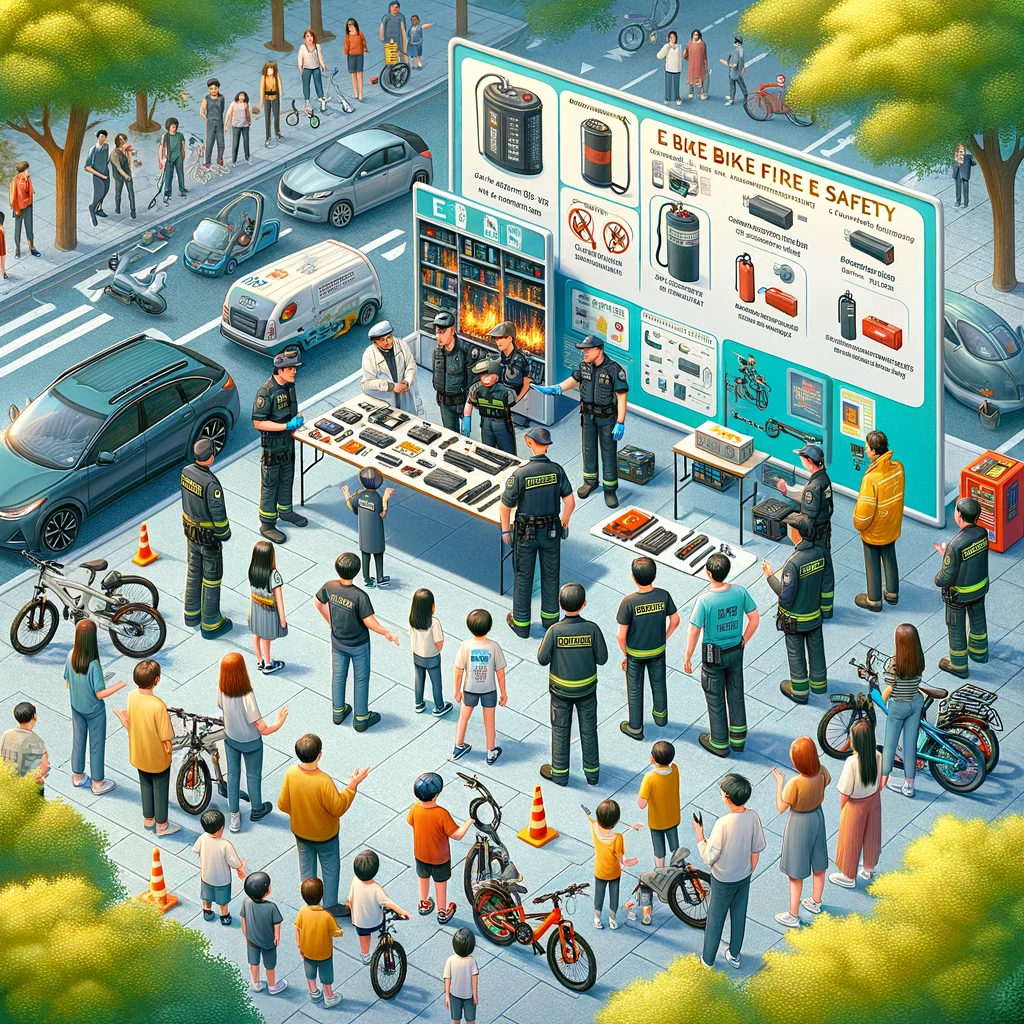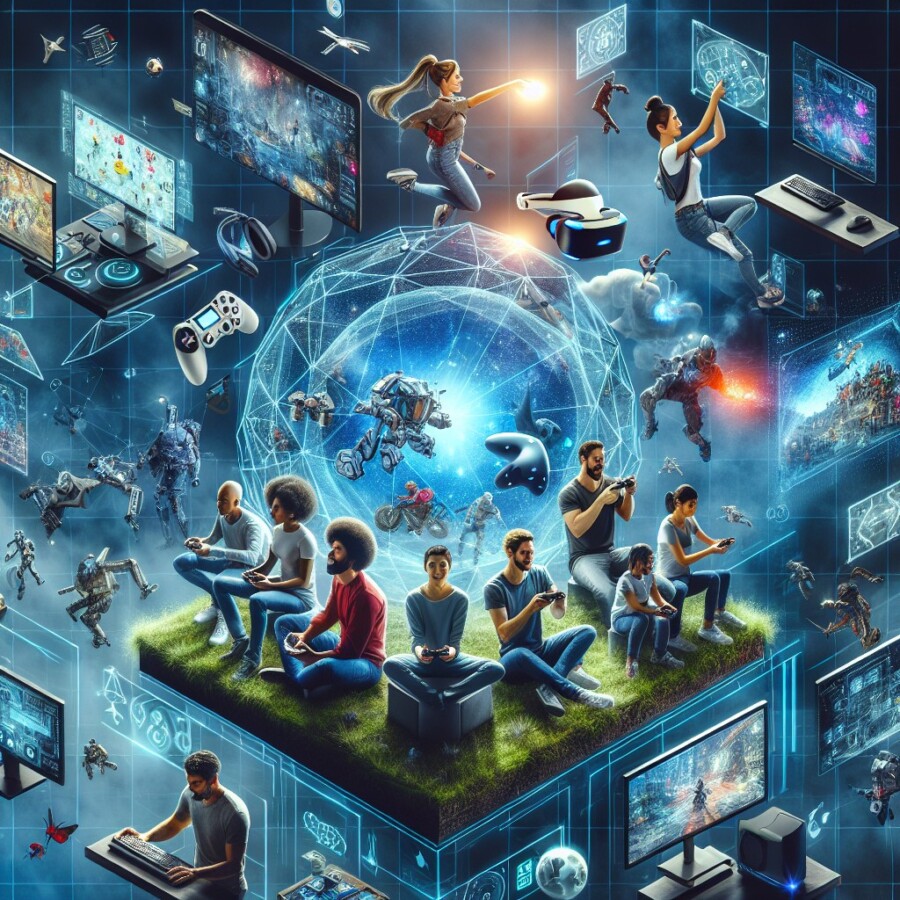YouTube has a new tool called Dream Track that uses artificial intelligence (AI) to let users imitate the voices of famous singers like Demi Lovato and John Legend. With this tool, you can make short songs by describing things like the lyrics and the mood. Right now, only about 100 creators in the US can use it, and it can only be used for videos on YouTube Shorts. They tested it with artists like Charli XCX, Troye Sivan, T-Pain, and Sia, who gave permission for their voices to be copied by the software. YouTube shared some sample videos of imitations of Charlie Puth and T-Pain, but they weren’t as good as the real voices.
YouTube recently said that they will let viewers know when they’re watching a video made with AI. They also said that people can ask for videos that use AI to copy someone’s voice to be taken down. Even though the artists involved with Dream Track said it was okay, some people still have concerns about using AI in the creative industries. Some AI tools have been trained on copyrighted material, which has led to lawsuits by authors like Jonathan Franzen, Jodi Picoult, and George R. R. Martin. In April, Universal Music got streaming services to remove a song that used AI-generated vocals from Drake and The Weeknd because it broke copyright rules.
The boss of Universal, Lucian Grainge, and the artists involved with Dream Track support using AI responsibly in the music industry. They think that artists should have a say in how AI technology develops. Charli XCX said that AI will change the world and the music industry, and using Dream Track gives us a small look into the creative possibilities that could come from it. T-Pain and Demi Lovato also said that artists need to be involved in shaping the future of AI.
Google, which owns YouTube, also announced other AI music projects. One of them lets artists hum a tune and then the software makes a background music track for it. They also said that any content made with these AI tools will have a special mark to show that it was made with AI.
Original news source: YouTube tests AI tool that clones pop stars’ voices (BBC)
Listen
Slow
Normal
Fast
Group or Classroom Activities
Warm-up Activities:
– News Summary
Instructions: In pairs or small groups, students read the article and write a summary of the main points. They should focus on the key information and try to condense it into a few sentences. Afterward, they can share their summaries with the class and discuss any differences or similarities they noticed.
– Opinion Poll
Instructions: Divide the class into small groups and assign each group a specific topic related to the article (e.g., AI in the music industry, copyright issues, the role of artists in shaping AI). Each group should discuss their assigned topic and come up with at least three statements expressing their opinions. Afterward, each group presents their statements to the class and leads a brief discussion.
– Vocabulary Pictionary
Instructions: Prepare a list of vocabulary words related to the article (e.g., artificial intelligence, imitate, copyright, responsible). Divide the class into pairs or small groups. One student from each group selects a word from the list and without speaking, tries to draw it on the board. The rest of the group must guess the word based on the drawing. The first group to guess correctly gets a point. Continue until all the words have been used or time runs out.
– Pros and Cons
Instructions: In small groups, students discuss the pros and cons of using AI in the music industry, as mentioned in the article. They should consider both the creative possibilities and the potential copyright issues. Afterward, each group presents their findings to the class and leads a brief debate, with students expressing their opinions and responding to each other’s arguments.
– Future Predictions
Instructions: In pairs or small groups, students discuss and make predictions about how AI will continue to impact the music industry in the future. They should consider both positive and negative effects, as well as potential challenges and opportunities. Each group presents their predictions to the class, and students can engage in a discussion about their different perspectives.
Comprehension Questions:
1. What is the name of the new tool on YouTube that uses AI to imitate famous singers’ voices?
2. How many creators in the US can currently use Dream Track?
3. What type of videos can Dream Track be used for?
4. Which famous artists gave permission for their voices to be copied by the software?
5. What did YouTube recently announce about videos made with AI?
6. Why do some people have concerns about using AI in the creative industries?
7. Who supports the responsible use of AI in the music industry?
8. What other AI music projects did Google announce?
Go to answers ⇩
Listen and Fill in the Gaps:
YouTube has a new tool called Dream Track that uses artificial intelligence (AI) to let users (1)______ the voices of famous singers like Demi (2)______ and John Legend. With this tool, you can make short songs by describing things like the lyrics and the mood. Right now, only about 100 creators in the US can use it, and it can only be used for videos on YouTube (3)______. They tested it with artists like Charli XCX, Troye (4)______, T-Pain, and Sia, who gave permission for their voices to be copied by the software. YouTube shared some sample (5)______s of imitations of Charlie Puth and T-Pain, but they weren’t as good as the real voices.
YouTube recently said that they will let viewers know when they’re watching a video made with AI. They also said that people can ask for videos that use AI to copy someone’s voice to be taken down. Even though the (6)______ involved with Dream Track said it was okay, some people still have (7)______ about using AI in the (8)______ industries. Some AI tools have been trained on copyrighted material, which has led to lawsuits by authors like Jonathan (9)______, Jodi Picoult, and George R. R. Martin. In April, Universal Music got streaming services to remove a song that used AI-generated vocals from Drake and The Weeknd because it (10)______ copyright rules.
The boss of Universal, Lucian Grainge, and the artists involved with (11)______ Track support using AI responsibly in the music industry. They think that artists should have a say in how AI (12)______ develops. Charli XCX said that AI will change the world and the music (13)______, and using Dream Track gives us a small look into the creative possibilities that could come from it. T-Pain and Demi Lovato also said that artists need to be involved in shaping the future of AI.
Google, which owns YouTube, also announced other AI music (14)______. One of them lets artists hum a tune and then the software (15)______ a background music (16)______ for it. They also said that any content made with these AI tools will have a special mark to show that it was made with AI.
Go to answers ⇩
Discussion Questions:
Students can ask a partner these questions, or discuss them as a group.
1. What is Dream Track and how does it work?
2. How would you feel if you could imitate the voice of a famous singer using AI?
3. Do you like the idea of using AI to imitate voices in music? Why or why not?
4. How do you think AI technology could change the music industry?
5. Do you think artists should have a say in how AI technology develops? Why or why not?
6. What are some concerns people have about using AI in the creative industries?
7. Have you ever heard a song that used AI-generated vocals? How did you feel about it?
8. Do you think it’s important for viewers to know when they’re watching a video made with AI? Why or why not?
9. How do you think AI technology could be used in other creative fields, like writing or painting?
10. Have you ever used any AI tools for creative purposes? If so, what was your experience like?
11. How do you think AI technology could impact copyright laws in the future?
12. Do you think AI will ultimately benefit or harm the music industry? Why or why not?
13. How do you think AI technology could be used to support artists in their creative process?
14. What are some potential ethical considerations when using AI in the music industry?
15. How do you feel about the idea of AI creating background music tracks for artists? Why or why not?
Individual Activities
Vocabulary Meanings:
Match each word to its meaning.
Words:
1. tool
2. artificial intelligence (AI)
3. imitate
4. creators
5. permission
6. software
7. concerns
8. responsible
Meanings:
(a) Acting in a way that is careful and thoughtful
(b) Worries or doubts about something
(c) Programs and data that tell a computer what to do
(d) People who make something new
(e) Copy someone’s actions or behavior
(f) Technology that makes machines think and learn
(g) Approval to do something
(h) Something that helps you do a task
Go to answers ⇩
Multiple Choice Questions:
1. What is the name of the new tool on YouTube that uses AI to imitate famous singers?
(a) Voice Imitator
(b) Dream Track
(c) Singers’ Choice
(d) AI Melodies
2. How many creators in the US can currently use the Dream Track tool?
(a) Thousands
(b) About 100
(c) Only 10
(d) None, it’s not available in the US
3. Which platform can Dream Track be used for?
(a) YouTube Music
(b) YouTube Gaming
(c) YouTube Shorts
(d) YouTube Live
4. Which artists gave permission for their voices to be copied by the Dream Track software?
(a) Charli XCX, Troye Sivan, T-Pain, and Sia
(b) Demi Lovato, John Legend, Charlie Puth, and Drake
(c) Taylor Swift, Ariana Grande, Ed Sheeran, and Beyoncé
(d) Justin Bieber, Rihanna, Billie Eilish, and Post Malone
5. What did YouTube recently announce about videos made with AI?
(a) Viewers will be informed when they’re watching one
(b) They will be removed from the platform
(c) They will receive a special award
(d) They will be promoted more than other videos
6. Which artists support using AI responsibly in the music industry?
(a) Taylor Swift, Justin Bieber, and Rihanna
(b) Ariana Grande, Ed Sheeran, and Billie Eilish
(c) Beyoncé, Post Malone, and Drake
(d) Charli XCX, T-Pain, and Demi Lovato
7. What other AI music project did Google announce?
(a) One that analyzes song lyrics
(b) One that generates music videos
(c) One that predicts the next hit song
(d) One that creates a background music track from a hummed tune
8. How will content made with AI tools be marked on YouTube?
(a) With a red badge indicating AI usage
(b) With a gold star for creativity
(c) With a special mark to show it was made with AI
(d) With a warning label about AI technology
Go to answers ⇩
True or False Questions:
1. YouTube will let viewers know when they’re watching a video made with AI, and people can request videos that use AI to copy someone’s voice to be taken down.
2. Artists like Charli XCX, Troye Sivan, T-Pain, and Sia gave permission for their voices to be copied by the software for testing.
3. YouTube shared sample videos of imitations of Charlie Puth and T-Pain, but they weren’t as good as the real voices.
4. Some people have no concerns about using AI in the creative industries due to copyright issues and lawsuits.
5. Google, which owns YouTube, announced other AI art projects, including one that creates background music tracks based on artists humming a tune.
6. Only about 100 creators in the US can currently use Dream Track, and it can only be used for videos on YouTube Shorts.
7. YouTube has a new tool called Dream Track that uses AI to imitate the voices of famous actors like Demi Lovato and John Legend.
8. The boss of Universal and the artists involved with Dream Track oppose using AI responsibly in the music industry.
Go to answers ⇩
Write a Summary:
Write a summary of this news article in two sentences.
Check your writing now with the best free AI for English writing!
Writing Questions:
Answer the following questions. Write as much as you can for each answer.
Check your answers with our free English writing assistant!
1. What is the name of the new tool on YouTube that uses artificial intelligence?
2. How does Dream Track work?
3. Who are some of the famous singers that users can imitate with Dream Track?
4. What did YouTube recently announce about videos made with AI?
5. Why do some people have concerns about using AI in the creative industries?
Answers
Comprehension Question Answers:
1. The new tool on YouTube that uses AI to imitate famous singers’ voices is called Dream Track.
2. Currently, only about 100 creators in the US can use Dream Track.
3. Dream Track can be used for videos on YouTube Shorts.
4. Artists like Charli XCX, Troye Sivan, T-Pain, and Sia gave permission for their voices to be copied by the software.
5. YouTube recently announced that they will let viewers know when they’re watching a video made with AI, and people can ask for videos that use AI to copy someone’s voice to be taken down.
6. Some people have concerns about using AI in the creative industries because some AI tools have been trained on copyrighted material, leading to lawsuits and copyright infringement issues.
7. The boss of Universal, Lucian Grainge, and the artists involved with Dream Track support the responsible use of AI in the music industry.
8. Google also announced other AI music projects, including one that lets artists hum a tune and the software makes a background music track for it.
Go back to questions ⇧
Listen and Fill in the Gaps Answers:
(1) imitate
(2) Lovato
(3) Shorts
(4) Sivan
(5) video
(6) artists
(7) concerns
(8) creative
(9) Franzen
(10) broke
(11) Dream
(12) technology
(13) industry
(14) projects
(15) makes
(16) track
Go back to questions ⇧
Vocabulary Meanings Answers:
1. tool
Answer: (h) Something that helps you do a task
2. artificial intelligence (AI)
Answer: (f) Technology that makes machines think and learn
3. imitate
Answer: (e) Copy someone’s actions or behavior
4. creators
Answer: (d) People who make something new
5. permission
Answer: (g) Approval to do something
6. software
Answer: (c) Programs and data that tell a computer what to do
7. concerns
Answer: (b) Worries or doubts about something
8. responsible
Answer: (a) Acting in a way that is careful and thoughtful
Go back to questions ⇧
Multiple Choice Answers:
1. What is the name of the new tool on YouTube that uses AI to imitate famous singers?
Answer: (b) Dream Track
2. How many creators in the US can currently use the Dream Track tool?
Answer: (b) About 100
3. Which platform can Dream Track be used for?
Answer: (c) YouTube Shorts
4. Which artists gave permission for their voices to be copied by the Dream Track software?
Answer: (a) Charli XCX, Troye Sivan, T-Pain, and Sia
5. What did YouTube recently announce about videos made with AI?
Answer: (a) Viewers will be informed when they’re watching one
6. Which artists support using AI responsibly in the music industry?
Answer: (d) Charli XCX, T-Pain, and Demi Lovato
7. What other AI music project did Google announce?
Answer: (d) One that creates a background music track from a hummed tune
8. How will content made with AI tools be marked on YouTube?
Answer: (c) With a special mark to show it was made with AI
Go back to questions ⇧
True or False Answers:
1. YouTube will let viewers know when they’re watching a video made with AI, and people can request videos that use AI to copy someone’s voice to be taken down. (Answer: True)
2. Artists like Charli XCX, Troye Sivan, T-Pain, and Sia gave permission for their voices to be copied by the software for testing. (Answer: True)
3. YouTube shared sample videos of imitations of Charlie Puth and T-Pain, but they weren’t as good as the real voices. (Answer: True)
4. Some people have no concerns about using AI in the creative industries due to copyright issues and lawsuits. (Answer: False)
5. Google, which owns YouTube, announced other AI art projects, including one that creates background music tracks based on artists humming a tune. (Answer: False)
6. Only about 100 creators in the US can currently use Dream Track, and it can only be used for videos on YouTube Shorts. (Answer: True)
7. YouTube has a new tool called Dream Track that uses AI to imitate the voices of famous actors like Demi Lovato and John Legend. (Answer: False)
8. The boss of Universal and the artists involved with Dream Track oppose using AI responsibly in the music industry. (Answer: False)
Go back to questions ⇧















